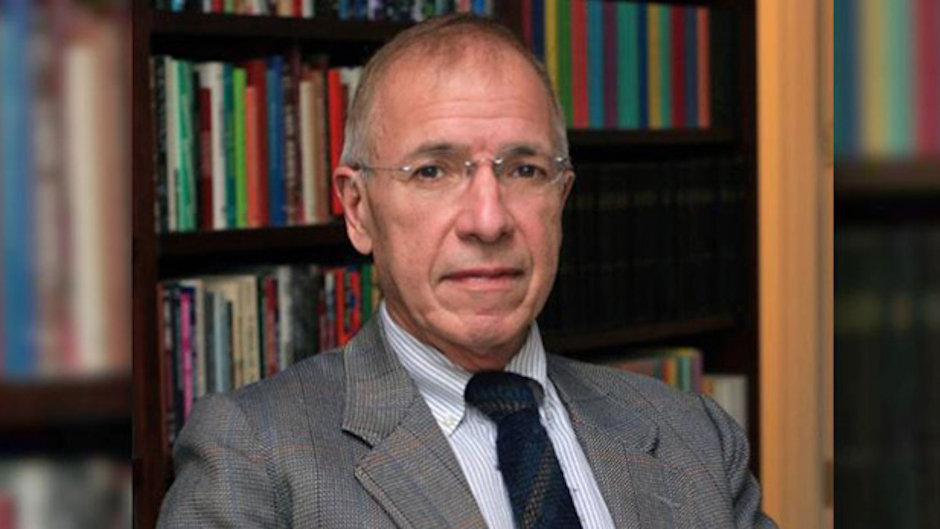Law scholar, demographer, and sociologist, Alejandro Portes, who joined the University of Miami faculty in 2011 after decades of illuminating Miami’s cultural transformation, has been awarded the 2019 Princess of Asturias Award in the Social Sciences for his significant contributions to the study of international migration. Professor Portes is a Professor of Law and Sociology at the University of Miami, and the Howard Harrison and Gabrielle Snyder Beck Professor of Sociology (Emeritus) at Princeton University.
The Princess of Asturias Award is the highest form of recognition bestowed by the Spanish Crown and one of the most important prizes conferred in the European Union. The prize was established “to contribute to, encourage, and promote scientific, cultural, and humanistic values that form part of humankind’s universal heritage.”
Patricia D. White, Dean Emerita and Professor of University of Miami School of Law extolled the honor, “Alex Portes is a treasure! His longitudinal examinations of immigrant populations are enormously important and should be read by anyone who thinks about immigration policy.”
Honored for Life’s Work on International Migration
Over his four decades of exploring how immigrants adapt to new countries, Portes, who joined UM in 2011 as a Professor of Law and Distinguished Scholar of Arts and Sciences, became what jurors for the award called “a source of reference to guide and organize the empirical research of social scientists around the world.”
“Professor Portes has made fundamental contributions to the study of international migration, one of the major challenges faced by contemporary societies,” jurors said in announcing the award that honors impactful scientific, technical, cultural, social, and humanitarian work carried out at an international level.
“Through innovative concepts such as the ethnic enclave and segmented integration, he has elucidated the conditions under which migratory flows can be beneficial for both immigrants and host countries,” the jurors continued. “In addition to his contributions to the knowledge of minorities in the United States, he has carried out numerous studies in Latin America and Spain, where he has been a mentor and collaborator of several generations of researchers.”
Research on Spain
Portes, who is also known for his research in economic sociology, comparative development, and the urbanization of developing countries, said he was honored to be recognized by a country whose immigration policies could serve as a model for the world. As he noted, his decade-plus research on migrations to Spain showed that, on the whole, the integration of second generations—the children of immigrants—has been positive for the European nation.
“It is a twofold honor to receive this award from a country where immigrants and their children have generally been able to become integrated and progress and whose policies in this regard could serve as an example to other countries that receive migrants,” Portes said.
Extensive Writings and Longitudinal Study on Migration, Focus on Cuba
The author of more than 30 books, including two on Miami written a quarter of a century apart—“City on the Edge: The Transformation of Miami” (in 1993 with Alex Stepick) and “The Global Edge: Miami in the Twenty-First Century” (in 2018 with Ariel C. Armony)—Portes began his groundbreaking research in the early 1970s while a professor at the University of Texas. There he spent more than six years interviewing 1,500 Cubans who had emigrated to Miami. His study showed that the highly entrepreneurial Cuban immigrants who fled their own homeland had created a successful “ethnic enclave” independent from the city.
A subsequent, long-term study at Johns Hopkins University, the “Children of Immigrants Longitudinal Study,” was based on interviews of more than 5,000 children who were surveyed again as adolescents. That study concluded the so-called second generation integrated well into American society, but also detected that the children of illegal immigrants were at risk for failing to adapt.
Carmen Perez-Llorca, Assistant Dean for International and Graduate Programs and Director, International Graduate Law Programs and a native of Spain, notes the significance of Spain's highest honor being granted to a faculty member from Miami Law: “The Princess of Asturias Awards are internationally prestigious prizes presented in a yearly ceremony in Oviedo. Other individuals and organizations receiving the award this year include Peter Brook, the Prado Museum, Salman Khan and the Khan Academy. The award is without a doubt a fitting testament to the quality and relevance of Professor Portes’ work.”

